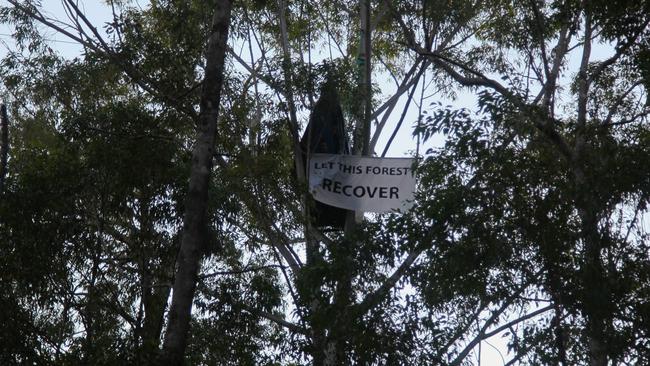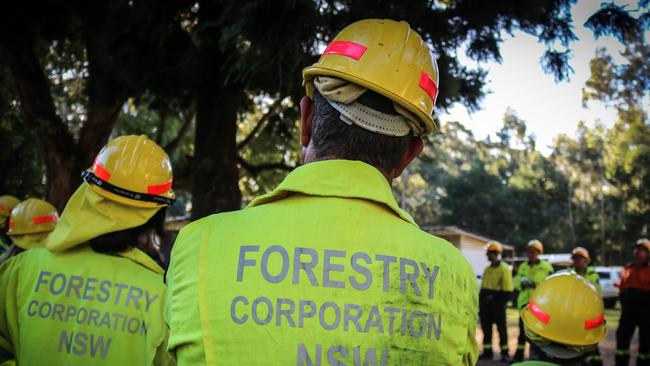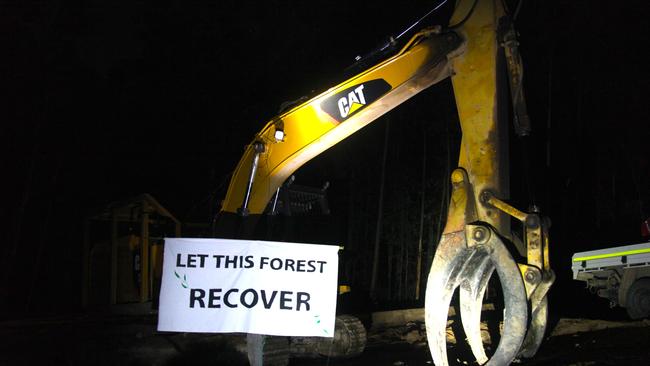NSW Environmental Protection Agency (EPA) fines Forestry Corporation of NSW $45,000 for alleged ‘blatant disregard’ of rules
The NSW EPA has hit the Forestry Corporation with $45,000 in fines for “breaches” amounting to “blatant disregard” of environmental rules in state forests. Here’s what we know.

Regional News
Don't miss out on the headlines from Regional News. Followed categories will be added to My News.
The NSW Environment Protection Authority has hit Forestry Corporation of NSW with $45,000 in fines for “breaches” amounting to “blatant disregard” in forests near Coffs Harbour and on the far south coast.
The agency (EPA) issued a public statement on Friday on two separate incidents at Bagawa State Forest near Coffs Harbour and Nadgee State Forest on the Far South Coast.

“In February 2023, an alleged illegal tree removal in Bagawa State Forest occurred on a slope greater than 25 degrees, breaching obligations to prevent soil erosion and resulting in two penalty infringement notices totalling $30,000,” the EPA states.
“The clearing contravened specific seasonal requirements, but FCNSW (the corporation) also failed to identify the area subject to the protocol on a map.”
There have been protests against the corporation at Bagawa State Forest, including in 2020 when protesters suspended operations by attaching themselves to machinery.
The forest was affected by the devastating Liberation Trail Fire that burnt over 150,000 hectares of land in December 2019.

The EPA states 15 trees and other forms of vegetation were removed from an Environmentally Significant Area at Nadgee State Forest in 2023. A $15,000 fine was issued.
“The area was part of a designated tree retention clump, prohibited from forestry operations to protect hollow bearing trees under the Coastal Integrated Forestry Operations Approval (CIFOA),” the EPA states.
EPA director of operations Jason Gordon said: “We have rules in place to protect water quality, vegetation and important habitats during forestry operations.”
“Ignoring these rules is a blatant disregard for our environment and their duty to protect hollow bearing trees for crucial fauna,” he said.
“In no circumstances should 15 trees have been removed from an Environmentally Significant Area.

“We are disappointed by these incidents, which occurred prior to the recent changes in the CIFOA.”
Mr Gordon said the corporation had to undertake nocturnal surveys and keep extra trees as part of increased protections for greater gliders, an endangered marsupial.
“FCNSW claimed the Nadgee State Forest issue arose due to a mapping software failure, however, our investigations found the software problem was known prior,” he added.
“At Bagawa, the seasonal requirements are important to prevent soil erosion during high rainfall and on this occasion further damage was only minimised due to rainfall being lower than expected.”
What Forestry Corporation NSW had to say
Regarding the Bagawa incident, general manager Hardwood Forests Division Daniel Tuan said the corporation “apologises for not adhering to requirements prohibiting harvesting in steeper areas during the January to March period”.
“The error occurred when operations that were scheduled to be completed ahead of the … period were delayed and we sincerely regret this oversight,” he said.
“Water quality was continually monitored throughout the operation and no water pollution or potential for water pollution were identified.
“However, we acknowledge that our error risked causing environmental harm and have since put specific procedures in place for managing seasonality conditions and provided additional training to staff to ensure they are fully implemented.

“The penalty did not relate to hollow bearing trees or gliders.”
Addressing Nadgee, Mr Tuan said the corporation “regrets that a synching issue with an electronic map resulted in trees being removed”.
“In this instance, an area was identified and mapped immediately prior to operations, but the maps used are very detailed and upload in multiple layers. One layer did not load to the mapping software used by the contractor,” he said.
“At the time, Forestry Corporation had not been able to identify the source of the synching error, but has subsequently rectified it.”
Mr Tuan said the corporation had made “substantial investments in compliance” and been “continually improving technology to enhance accuracy and precision in boundary identification”.
“ … unfortunately the technology failed to synch on this occasion,” he added.
Mr Tuan said the corporation “took swift action” once it realised mistakes had been made and were “investigating the cause of the technology failure”.
He indicated more investment would continue to improve operations and avoid errors.




